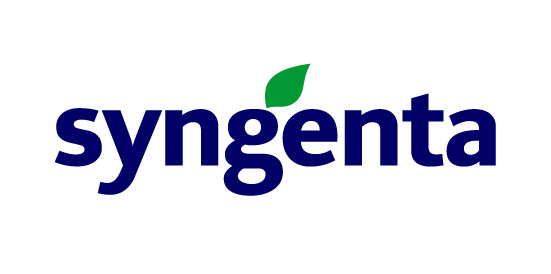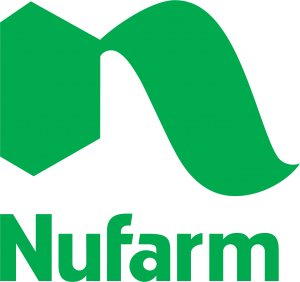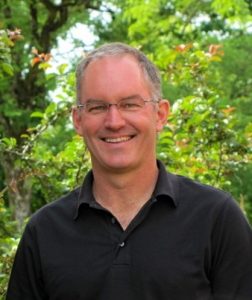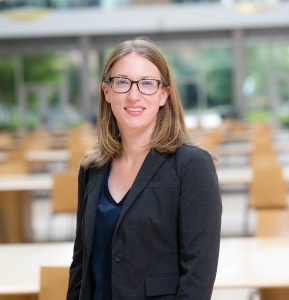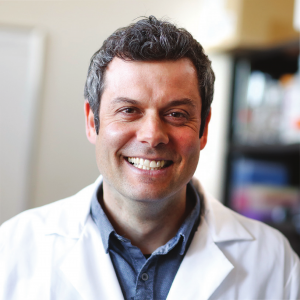Date
04/07/2022 - 08/07/2022
2022 CPS Annual Meeting (VIRTUAL), July 4-8, 2022
“Harnessing the phytobiome for sustainable plant health”
Phytobiome research has reached maturity and is making an impact on various other fields of research, often providing a more holistic approach to solve various problems, including plant/tree productivity, promoting health, mitigating environmental impacts and diseases (pathologies), and assisting general plant/tree management. Aboveground, endophytic, and underground microbial communities are being investigated for their roles, made easier lately by inventories of such communities revealed using various high-throughput analysis tools, sequencing, proteomics and metabolomics. Contributions of various constituents in natural communities, and effects of plant-associated microbial assemblages are being investigated. Our keynote speaker and three symposium speakers will address various aspects of microbiome research.
Registration Opens: April 1st, 2022
Graduate student competition sponsored by Syngenta
Key Note Speaker
SPEAKER: Julia A. Vorholt
ETH Zurich, Institute of Microbiology, Switzerland
TITLE: “The leaf microbiota: disassembling and rebuilding to explore plant microbe interactions”
ABSTRACT
Plant-associated microbiomes contribute to host phenotypes such as growth, health, and resilience. Ongoing research aims to uncover the molecular basis by which host-microbe and microbe-microbe interactions shape and maintain microbial communities, and to understand the role of individual microorganisms and their collective ecosystem function. Reductionist approaches are discussed to disentangle the inherent complexity of interactions in situ. Such experimentally tractable, synthetic communities enable hypotheses to be tested through targeted manipulation in gnotobiotic systems. Altering microbial, host, and environmental parameters allows quantitative assessment of host and microbial characteristics. The use of multifaceted approaches to detect interactions and functions provides new insights into the fundamental biology of plant-microbe interactions and helps to harness the power of the microbiome.
BIO
Julia Vorholt is Full Professor at ETH Zurich (Swiss Federal Institute of Technology in Zurich). She studied biology at the Universities of Bonn and Marburg, Germany. During her PhD thesis (1994-1997) she focused on the biochemistry of methanogenesis, the biological process resulting in methane formation, under the supervision of Prof. Dr. R. K. Thauer at the Max-Planck-Institute for terrestrial Microbiology in Marburg. Thereafter, she initiated work on the one-carbon metabolism of methylotrophic bacteria as a postdoc at the University of Washington in Seattle with M. E. Lidstrom (1998) and at the MPI Marburg (1999-2001) where she built up a research group on the biochemistry of methylotrophic bacteria. From 2001 to 2006 she headed an independent research group at the Laboratory of Plant Microbe Interactions in Toulouse, France, within the frame of an exchange program of the Centre National de la Recherche Scientifique (CNRS) and the Max-Planck-Society. Julia Vorholt was appointed as Associate Professor of ETH Zurich at the Institute of Microbiology in 2006 and is Full Professor since 2012.
In her research, she investigates how the environment, in particular the phyllosphere, shapes bacterial physiology and microbial interactions, with an emphasis on metabolism, novel protein function, gene regulation, and beneficial functions to the host. Julia Vorholt is Director of Studies at the Department of Biology at ETH Zurich and Co-director of the Swiss National Center of Competence in Research (NCCR) Microbiomes. She is a member of the German National Academy of Sciences Leopoldina, the European Academy of Microbiology and the European Molecular Biology Organization (EMBO) and received two ERC Advanced Grants.
Key note speaker presentation sponsored by BASF
Symposium
“Tweaking the phytobiome for sustainable plant health”
Dr. Niklaus Grunwald, Research Plant Pathologist, USDA, Corvallis, OR, USA.
Dr. Cara Haney, Faculty of Science, University of British Columbia, Vancouver, BC, Canada
Dr. Martin Filion, Research Scientist, AAFC, Saint-Jean sur Richelieu, QC, Canada
Symposium presentations sponsored by NuFarm
SPEAKER: Niklaus J. Grünwald
TITLE: “Novel computational and genomic approaches to understand oomycete emergence”
ABSTRACT
Oomycetes are a group of fungus-like eukaryotes known for causing many devastating plant diseases such as potato late blight, Jarrah dieback, and sudden oak death. We have studied the emergence of several pathogens using a combination of genomic and computational approaches to characterize the role of oomycetes in plant health. Metabarcoding is revolutionizing microbial ecology by circumventing the limits of traditional culture-based techniques. We developed novel computational tools including Metacoder and propose a new metabarcode locus, rps10. Metacoder implements a novel visualization called heat trees that use the color and size of nodes and edges on a taxonomic tree to quantitatively depict up to 4 statistics distributed over a hierarchy. This allows for rapid exploration of data and information-dense, publication-ready graphics. In addition, metacoder provides tools for reading common file formats and evaluating primers and barcode loci using simulated PCR. These tools and approaches provide a new resource for understanding the role of oomcyetes in agricultural and natural ecosystems.
BIO
Niklaus J. Grünwald is a Research Plant Pathologist with the Horticultural Crops Research Laboratory, USDA Agricultural Research Service, in Corvallis, Oregon and Professor in the Department of Botany and Plant Pathology and the Center for Quantitative Life Sciences at Oregon State University. He received his Ph.D. in plant pathology from the University of California at Davis and conducted postdoctoral research at Cornell University. His principal research interests include the ecology, genetics, evolution, and management of emerging Phytophthora diseases with a special emphasis on the Sudden Oak Death pathogen Phytophthora ramorum and the Irish famine pathogen P. infestans. More recently, he has started working on projects involving oomycete biodiversity, comparative genomics of the genus Phytophthora, and development of computational and bioinformatics tools for comparative genomics, genotyping-by-sequencing, population genomics, metabarcoding, metagenomics and diagnostics based on CRISPR-Cas. Grünwald has served as associate editor, senior editor and editor-in-chief for Phytopathology and PhytoFrontiers, editor for Plant Pathology, and currently serves as founding editor-in chief for CABI Agriculture and Bioscience. He has held numerous leadership positions including chair of the American Phytopathological Society (APS) Publications Board overseeing all APS journals that launched the new Phytobiomes open access journal. He currently is the vice president of the American Phytopathological Society (APS). He is a recipient of the 2006 USDA ARS Early Career Scientist of the Year award, the 2007 APS Syngenta award, the 2015 APS Ruth Allen Award recognizing outstanding, innovative research contribution that have changed the direction of research in any field of plant pathology and became APS fellow in 2016 and American Association for the Advancement of Science (AAAS) fellow in 2019.
@PhytophthoraLab
SPEAKER: Cara Haney
TITLE: “Mechanisms in plant regulation of rhizosphere microbiota”
ABSTRACT
The composition of microbes in agricultural soils, along with the interplay of plant-microbiome-pathogen genotypes, can influence disease incidence in the field. Pseudomonas fluorescens and related species are enriched in the plant rhizosphere and have been repeatedly implicated in disease suppression. To determine the genetic mechanisms by which plants shape levels of rhizosphere P. fluorescens, we screened a collection of Arabidopsis mutants affecting root immunity and hormone crosstalk. We identified several plant mutants with altered rhizosphere P. fluorescens levels without phylum-level dysbiosis. This talk will present several genes identified from this screen and their roles in regulating rhizosphere P. fluorescens. Understanding the genetic basis of how plants shape levels of beneficial bacteria in the rhizosphere will facilitate harnessing the microbiome to enhance plant disease resistance.
BIO
Dr. Cara Haney is an Associate Professor and Canada Research Chair in plant-microbiome interactions in the Department of Microbiology & Immunology at the University of British Columbia. She completed her PhD in 2011 from Stanford University focused on rhizobia-legume symbiosis. Prior to joining the UBC faculty in 2016, she was a postdoctoral fellow at Harvard Medical School where she began working on the Arabidopsis microbiome. Her lab uses high throughput screening combined with genetic and genomic approaches to identify the genetic basis of beneficial traits in plant-microbiome interactions. Her research focuses on elucidating basic mechanisms in host-microbiome interactions, and in finding sustainable solutions for agronomically important challenges.
SPEAKER: Martin Filion
TITLE: “A functional tailored inoculation approach for plant-beneficial Pseudomonas spp. promoting sustainable plant health”
ABSTRACT
A myriad of plant-associated Pseudomonas strains has been used as biocontrol agents against different plant pathogens. Although some success stories have been reported, inconsistencies under field conditions are often observed. To favor large-scale implementation of plant-beneficial Pseudomonas spp. in agroecosystems, key factors such as sufficient plant colonization, in situ expression of biocontrol mechanisms and environmental impact/persistence must be controlled. Genomics, amongst other approaches, has been successfully used in our laboratory as a powerful tool for providing key functional information about Pseudomonas strains of interest. Such functional information is needed to bridge the gap between results obtained under laboratory conditions and the efficient deployment of these microorganisms in the field. In this presentation, we will discuss how comparative genomics and other functional approaches can support the successful identification, characterization and implementation of plant-beneficial Pseudomonas spp. in agroecosystems for controlling plant diseases.
BIO
Dr. Martin Filion earned his Ph.D. from McGill University (QC) in 2002 in the field of molecular plant-microbe interactions. He was hired in 2003 as an Assistant Professor in the Department of Biology, Université de Moncton (NB) and promoted to the rank of Associate Professor in 2008 and Full Professor in 2016. In 2019 he joined Agriculture and Agri-Food Canada (AAFC) as a research scientist at the Saint-Jean-sur-Richelieu (QC) research centre. To date, Dr. Filion has secured more than $25 million in research funding (including major grants from Genome Canada, NSERC, CFI, and AAFC). He has authored more than 85 peer-reviewed publications and published numerous book chapters, as well as a book. Dr. Filion has established valuable collaborations with other research groups as well as with the private sector, including more than 20 different commercial partners. A patent originating from his research on plant-microbe interactions was obtained in 2018. Dr. Filion is very active on various editorial boards, including senior editor of Phytopathology, editor of the Canadian Journal of Microbiology, assistant editor of Frontiers in Microbiology and the Canadian Journal of Plant Pathology, and editorial board member of Applied and Environmental Microbiology and Microorganisms. In the last 20 years, various research projects conducted in Dr. Filion’s laboratory have focused on various aspects of plant-microbe interactions, with a special focus on the development of plant-beneficial Pseudomonas spp. inoculants for the agricultural sector. His research team has made significant progress in better understanding the molecular mechanisms that some of these strains use to protect plants from diseases.
Abstract Submission Opens: April 1st, 2022
Abstract Submission Closed: June 10th, 2022
INSTRUCTIONS TO AUTHORS
Programme
Sponsorship Opportunities
Limited opportunities will be available for companies to sponsor symposium, graduate student awards or contribute to conference operation expenses. All sponsors will be recognized with their logos on the meeting website, the conference program pdf, and announcements in relation to sponsored presentations or awards.
For more information, contact Dr. Tom Forge at tom.forge@agr.gc.ca
Registration
Video-conference link will be provided to those registered a few days before the meeting.
Registration Fees:
$50 students and emeritus
$100 members
$200 non-members
Since the meeting is virtual, we will not have early registration and late registration fees
Bookings
Bookings are closed for this event.
Categories

